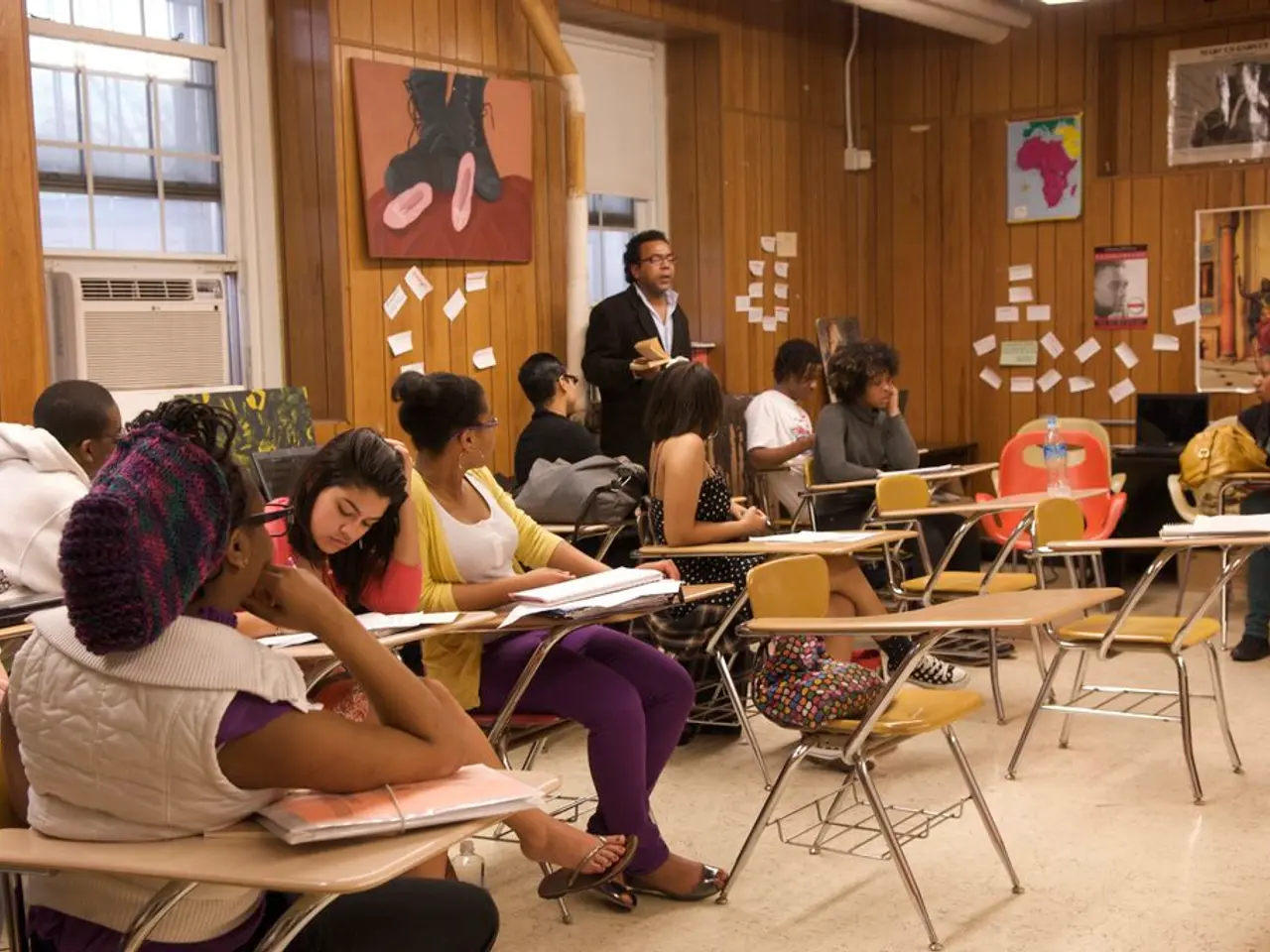Boosting Education with Immersive Hands-On Learning Methods
================================================================================
Experiential learning, a method that encourages students to learn through direct participation and real-world applications, is revolutionising education. This approach offers numerous benefits, from increasing student motivation to fostering critical thinking and enhancing career readiness.
By engaging in experiential activities, students develop a deeper understanding of subjects and retain knowledge more effectively. These activities facilitate the development of critical thinking skills by requiring students to analyse situations, make decisions, and solve problems collaboratively. They also foster curiosity, encourage exploration, and promote a deeper comprehension of concepts.
Project-based learning and service-learning are effective methods for integrating experiential activities into the curriculum. Examples of experiential activities include field trips, internships, collaborative projects, and simulations. Field trips, service learning, simulations, and role-playing are types of experiential activities that engage students actively in their education.
Successful implementation of experiential activities within education requires careful planning and execution. Educators can design hands-on, interactive activities such as simulations, role-playing, field trips, experiments, and project-based learning that encourage students to learn by doing and reflecting. Promoting collaborative learning through group projects and peer interactions builds teamwork skills and social learning.
Incorporating technology and gamification tools, such as quizzes, polls, and virtual reality, engages students actively and makes learning more enjoyable. Providing student choice and autonomy in project topics or learning pathways boosts motivation and personal investment. Employing formative assessments gives immediate feedback and tailors instruction to student needs. Creating safe learning environments, especially for simulations, allows students to experiment and learn from mistakes without real-world risks.
Gathering student feedback is essential for refining experiential activities and ensuring they align closely with learning objectives and meet the diverse needs of students. Encouraging a collaborative environment fosters a sense of ownership and empowers students to engage meaningfully in their learning experiences.
Assessing learning through experience involves evaluating personal growth, critical thinking, and practical application of knowledge. Methods such as reflective journaling, peer assessments, and creating portfolios can be used to assess students' understanding and skills development.
Future trends in experiential learning include the integration of virtual and augmented reality, interdisciplinary learning, community involvement, and continuous feedback mechanisms. These advancements promise to further enhance the learning process, ensuring that students not only acquire knowledge but also apply it effectively in real-world contexts.
In conclusion, incorporating experiential activities into educational frameworks significantly enhances student engagement and deepens understanding, preparing students for the complexity of the real world. This approach not only improves academic performance but also cultivates essential critical thinking skills, nurturing essential life skills such as teamwork, communication, and adaptability. Experiential learning, therefore, plays a crucial role in fostering career readiness and lifelong learning.
References:
[1] Kolb, D. A., & Fry, R. E. (1975). Experiential learning: Experience as the source of learning and development. Prentice-Hall.
[2] Dewey, J. (1938). Experience and education. University of Michigan Press.
[3] Bransford, J. D., Brown, A. L., & Cocking, R. R. (2000). How people learn: Brain, mind, experience, and school. National Academies Press.
[4] Dede, C. (2010). The promise of digital games for education. Teachers College Press.
[5] Schon, D. A. (1983). The reflective practitioner: How professionals think in action. Basic Books.
Experiential learning, a method from education-and-self-development, encourages personal-growth and learning by engaging students in hands-on, interactive activities that facilitate deeper understanding, critical thinking, and practical application of knowledge. Such activities, like simulations and project-based learning, also promote teamwork and communication skills, making them essential for personal growth and career readiness.




